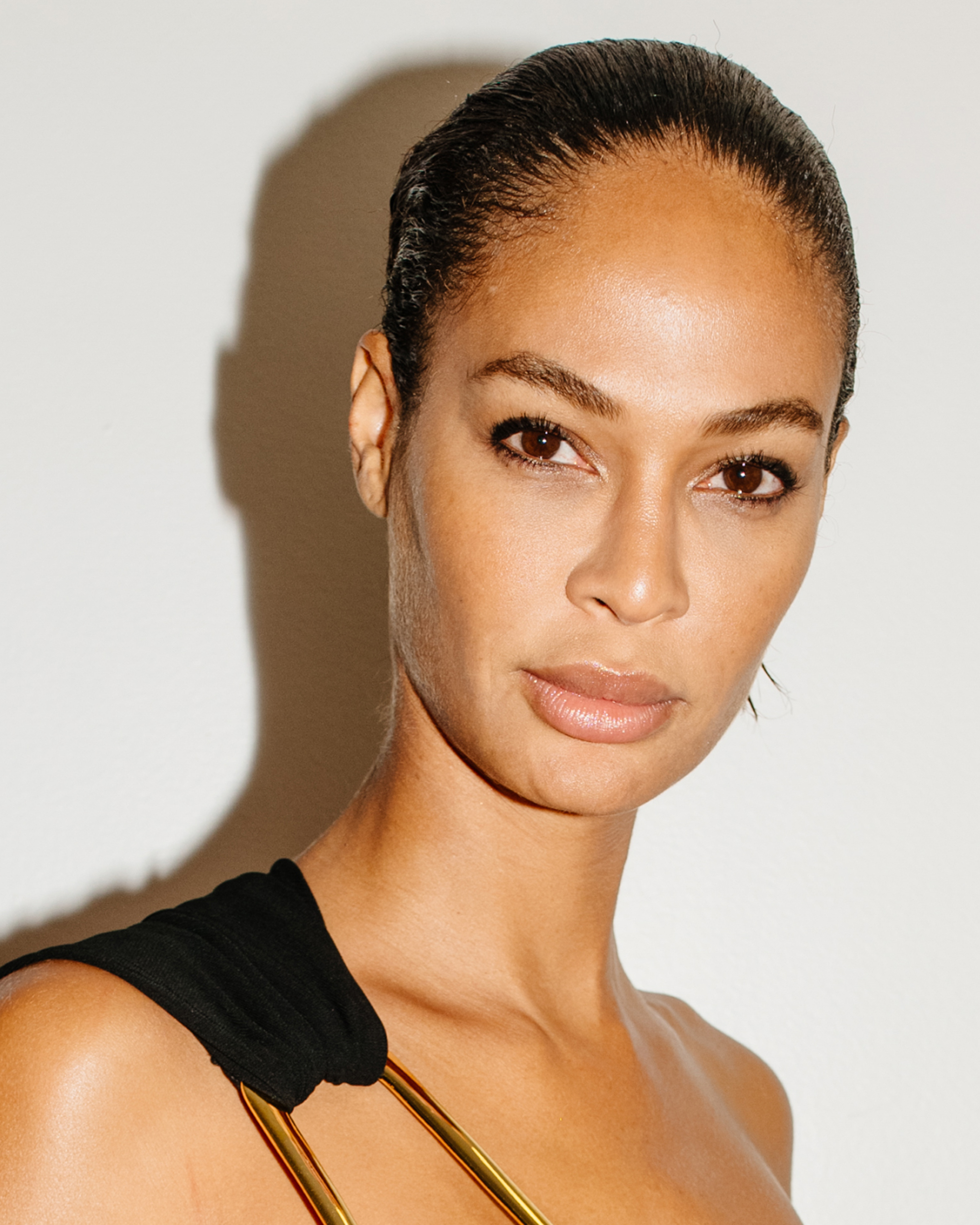Hunter Abrams | @hunterabrams
Finding out you are pregnant is ultimately one of the most joyous moments in life. But it also throws up a whole host of questions. What to eat? What supplements to take? What to use—or not use—in terms of skincare? It’s this last question that most often gets posed to our beauty desk. British Vogue beauty and wellness director Jessica Diner—herself eight months pregnant—speaks to two of her most trusted skincare experts, Dr Justine Kluk and facialist and Skinesis founder, Sarah Chapman, about how to navigate the minefield that is skincare during pregnancy.
Don’t buy into the scaremongering
If you have typed “what products to use on pregnant skin” into Google and felt immediately overwhelmed, you are not alone. As it’s forbidden to conduct clinical trials on pregnant women (for obvious reasons), most skincare formulators are unable to brand their products as being “safe” to use during pregnancy, but that doesn’t mean you can’t use them.
“My best advice is not to feel overcome with fear, or pressurised by marketing that suggests you need to incorporate hundreds of things into your routine when you’re pregnant,” assures Dr Kluk. “Most real safety concerns are about medications rather than cosmetics. However, we use cosmetics and skincare products most days, and in some cases twice daily or more, so there is some validity to concerns that cumulative exposure to certain ingredients might have adverse effects. Ultimately, you have to do what feels right for you.”
Chapman is in agreement. “It’s important to do your own research and make your own judgements. But I don’t think people should be so scared of cosmetic skincare. I understand the caution, because things do get absorbed into the body to a certain degree, but every product goes through safety testing, and actually, if it isn’t safe in terms of the concentration of an ingredient or active, you have to put a warning on it that says: ‘This is not suitable for use during pregnancy.’ It’s a cosmetic regulatory requirement.”
Do keep some of the pillars of your existing pregnancy routine
It’s not necessary to do away with your entire existing skincare routine and start again from scratch just because you’re pregnant. Rather, look at your skin and consider what it needs.
“During pregnancy, most people either get breakouts, or they tend to get quite dry and sort of deflated,” explains Chapman. “The key things to use are a good hyaluronic acid to maintain hydration; vitamin C to brighten and control things like melasma and pigmentation; and, most importantly, SPF for sun protection—pregnant or not!”
Dr Kluk concurs: “Cleanser and moisturizer are the non-negotiables. Look for ingredients like glycerin and ceramides in your moisturizer, and layer a hydrating hyaluronic acid serum underneath. Melasma often flares up in pregnancy, and daily sunscreen application is the best way of mitigating this. All other skincare you choose should be used on an as-needed basis.”
When it comes to breakouts, localized applications of salicylic acid on the affecting areas are advised, says Dr Kluk. “Localized applications of 2 per cent salicylic acid or less is generally felt to be acceptable, whereas more regular applications to a greater surface area in concentrations of more than 2 per cent is felt to be more risky.”
Do be cautious with retinol
Prescription retinols, such as Tretinoin, Retinaldehyde and Adapalene, are all an absolute no-go during pregnancy, says Dr Kluk, while Chapman explains that encapsulated formulas such as retinyl palmitate are less aggressive, and, as such, can be used in low doses.
“The concentration that we use in cosmetic formulations such as our Overnight Facial and Icon Night are not going to have a negative effect,” assures Chapman. “If you are using a cosmetic product that is stronger, at higher concentrations of one per cent, for example, I would stop using that.”
Don’t cut out oils entirely
“Essential oils such as those that you would find in an aromatherapy blend in a bath or body oil, and which are applied to the entire skin surface, should be avoided,” says Chapman, “because the concentration of the oils, as they get absorbed into the bloodstream, is potentially an issue. But if you’re using a face oil that has a fragrance with some essential oils in it, there’s not going to be any issue with that. Think about the sort of square footage of your face versus the rest of the body—when you are using something on your face, it’s a relatively small amount.”
Do speak to your midwife or doctor
Both our experts were unequivocal about the fact that speaking to an expert (not trawling through internet forums) to get reassurance about concerns or woes is key. After all, what harm is there in asking a question?
“If acne is getting progressively worse in pregnancy, if it is leaving scars or marks, if it is not responding to over-the-counter options and/or if it is affecting your self-esteem and mental health, then a dermatologist or GP can help with advice about prescriptions,” advises Dr Kluk.
Chapman adds, “We always say, if you’re concerned, ask your doctor or midwife. I know some people who have taken their products to the doctor just to triple-check. And if it might take the fear factor away a little bit, why not?”
This article was originally published on British Vogue.
